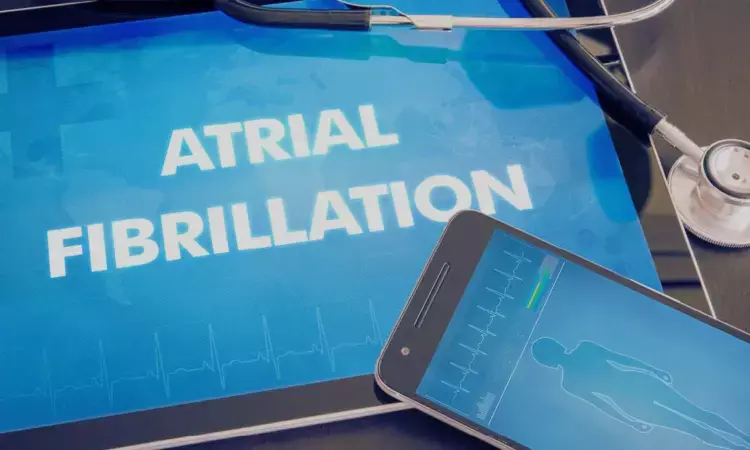- Home
- Medical news & Guidelines
- Anesthesiology
- Cardiology and CTVS
- Critical Care
- Dentistry
- Dermatology
- Diabetes and Endocrinology
- ENT
- Gastroenterology
- Medicine
- Nephrology
- Neurology
- Obstretics-Gynaecology
- Oncology
- Ophthalmology
- Orthopaedics
- Pediatrics-Neonatology
- Psychiatry
- Pulmonology
- Radiology
- Surgery
- Urology
- Laboratory Medicine
- Diet
- Nursing
- Paramedical
- Physiotherapy
- Health news
- Fact Check
- Bone Health Fact Check
- Brain Health Fact Check
- Cancer Related Fact Check
- Child Care Fact Check
- Dental and oral health fact check
- Diabetes and metabolic health fact check
- Diet and Nutrition Fact Check
- Eye and ENT Care Fact Check
- Fitness fact check
- Gut health fact check
- Heart health fact check
- Kidney health fact check
- Medical education fact check
- Men's health fact check
- Respiratory fact check
- Skin and hair care fact check
- Vaccine and Immunization fact check
- Women's health fact check
- AYUSH
- State News
- Andaman and Nicobar Islands
- Andhra Pradesh
- Arunachal Pradesh
- Assam
- Bihar
- Chandigarh
- Chattisgarh
- Dadra and Nagar Haveli
- Daman and Diu
- Delhi
- Goa
- Gujarat
- Haryana
- Himachal Pradesh
- Jammu & Kashmir
- Jharkhand
- Karnataka
- Kerala
- Ladakh
- Lakshadweep
- Madhya Pradesh
- Maharashtra
- Manipur
- Meghalaya
- Mizoram
- Nagaland
- Odisha
- Puducherry
- Punjab
- Rajasthan
- Sikkim
- Tamil Nadu
- Telangana
- Tripura
- Uttar Pradesh
- Uttrakhand
- West Bengal
- Medical Education
- Industry
Aggressive Risk Factor Management Reduces AF Recurrence After Ablation: JAMA

A new study published in JAMA Cardiology has found that intensive management of risk factors and weight greatly decreases AF recurrence after catheter ablation. In patients with atrial fibrillation, high BMI, and additional cardiometabolic risks, intensive lifestyle and risk factor management (LRFM) significantly lowered arrhythmia recurrence within 12 months post–catheter ablation. The study was conducted by Rajeev K. and colleagues.
Atrial fibrillation is still the most frequent cardiac arrhythmia, with recurrence rates still high after catheter ablation. Observational reports suggested that intense lifestyle modification, i.e., weight loss, blood pressure control, and control of metabolic risk factors, could ameliorate ablation outcome, but randomized clinical data were few. In response, a study was done using an open-label, multicenter randomized clinical trial in three centers in Adelaide, South Australia, to find the impact of LRFM on rhythm outcomes after AF ablation.
The trial was between July 2014 and September 2018 and followed participants for 12 months. A total of 122 patients with nonpermanent symptomatic AF, a body mass index (BMI) of 27 kg/m² or higher, and at least one additional cardiometabolic risk factor were enrolled. Participants were randomized equally into two groups: the LRFM group, which received structured, physician-led, individualized risk factor management, and the usual care (UC) group, which received standard clinical advice without structured intervention. Data were examined between September 2023 and August 2024.
All participants received first-time catheter ablation, mainly by pulmonary vein isolation, and both groups underwent guideline-directed AF treatment from clinicians who were blinded to treatment assignment. The main outcome assessed was the percentage of patients free of AF recurrence at 12 months after ablation.
The LRFM intervention included individualized treatments focusing on modifiable risk factors like obesity, hypertension, and metabolic dysbalance. Patients were provided with formal weight loss counselling, dietary advice, exercise prescription, and medical comorbidity optimization. The UC group received usual physician counsel without close follow-up or formal programs. This setup permitted estimation of the real additive value of dedicated lifestyle management on ablation outcomes.
Key Findings
• At 12 months, 61.3% in the LRFM group were AF-free recurrence compared with 40% in the UC group (P = 0.03).
• Hazard ratio for recurrent arrhythmia was 0.53 (95% CI, 0.32–0.89) and, therefore, a 47% reduced risk of recurrence with LRFM.
• Members of the LRFM group demonstrated a significant improvement in risk factor profile: mean body weight reduced by 9.0 kg (95% CI, −11.1 to −6.8 kg), waist circumference was reduced by 7.0 cm (95% CI, −9.4 to −4.5 cm), and systolic blood pressure was reduced by 10.8 mm Hg (95% CI, −16.1 to −5.5 mm Hg).
• Diastolic pressure gradients were small (−3.5 mm Hg; 95% CI, −7.2 to 0.2 mm Hg).
• Symptoms of AF were relieved more substantially in LRFM (mean difference, −2.0; 95% CI, −3.7 to −0.3) compared with UC.
In patients with AF, increased BMI, and one or more cardiometabolic risk factors, intensive lifestyle and risk factor management substantially decreased arrhythmia recurrence at 12 months of catheter ablation. These findings emphasize the imperative position of multicomponent lifestyle intervention programs for maintaining sinus rhythm and enhancing long-term AF ablation results.
Reference:
Pathak RK, Elliott AD, Lau DH, et al. Aggressive Risk Factor Reduction Study for Atrial Fibrillation Implications for Ablation Outcomes: The ARREST-AF Randomized Clinical Trial. JAMA Cardiol. Published online October 29, 2025. doi:10.1001/jamacardio.2025.4007
Dr Riya Dave has completed dentistry from Gujarat University in 2022. She is a dentist and accomplished medical and scientific writer known for her commitment to bridging the gap between clinical expertise and accessible healthcare information. She has been actively involved in writing blogs related to health and wellness.
Dr Kamal Kant Kohli-MBBS, DTCD- a chest specialist with more than 30 years of practice and a flair for writing clinical articles, Dr Kamal Kant Kohli joined Medical Dialogues as a Chief Editor of Medical News. Besides writing articles, as an editor, he proofreads and verifies all the medical content published on Medical Dialogues including those coming from journals, studies,medical conferences,guidelines etc. Email: drkohli@medicaldialogues.in. Contact no. 011-43720751


